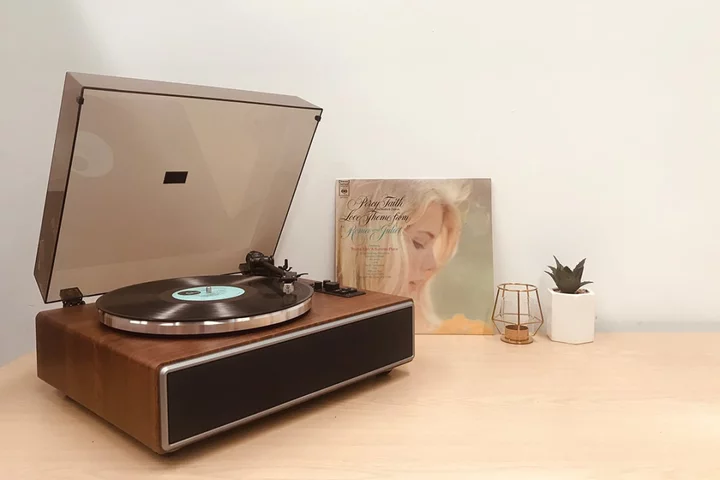LONDON, UK: On September 11, 1970, the famous guitarist Jimi Hendrix gave his final interview. Hendrix gave a detailed insight into his evolving musical direction and expressed a desire to explore new sounds and genres beyond the psychedelic rock that had made him famous.
Little did anyone know that this would be the last interview of the man who had redefined rock music with his innovative guitar playing. Hendrix died on September 18, 1970, at the age of 27, leaving an enduring legacy that continues to inspire generations of musicians.
Hendrix gave more interviews just before he died to advertise upcoming performances in the United Kingdom.
In an interview with NME, he was questioned about his ability to plan concerts without collecting a cover charge at the entrance.
"I can dig that! I can really dig that," Hendrix responded. "We should be able to, there's no reason why we shouldn't."
He further detailed in his final interview, "We should only collect enough as what we can pay with. Expenses from the last time to the next time."
The musician then said some eerie things just seven days before he sadly and inexplicably died.
"We have time," he stated with confidence. "There's no big rush. There's no reason why we can't do free concerts here," as per Express.
Who conducted the final interview with Jimi Hendrix?
Keith Altham, a popular rock and roll author, broadcaster, and features editor for the New Musical Express, conducted countless interviews with artists like the Beatles, Stones, Jimi Hendrix, Rod Stewart, Tom Jones, and many more.
NME’s Keith Altham sat down to talk with Jimi Hendrix on September 11, 1970, one week before the singer's death.
Altham is also credited for suggesting to Hendrix that he set fire to his instrument, and he was the final person to interview the guitarist before his death.
The half-hour conversation took place in London's Cumberland Hotel five days before the famous guitarist was discovered dead at the age of 27 in a Notting Hill apartment in 1970.
The interviewer, journalist Altham, saw Hendrix perform three days after his arrival in England in 1966 and knew him for most of his final four years.
"He was an extraordinary force and used that guitar like a third arm, he was like two people on one guitar," he said to The Independent.
"He was an assimilation of all the music styles he had been through in his early career when he had played with the Isley Brothers and Ike & Tina Turner and Little Richard. He wasn’t just a blues guitarist or a jazz guitarist or a rock and roll guitarist – he was all of them rolled into one."
In all, Altham interviewed Hendrix eight times. But at their final meeting the musician was “rambling” and showing signs of ill health.
The last interview served as the inspiration for a piece that Altham wrote for the music publication Record Mirror.
A portion of the conversation was featured in a Hendrix tribute piece on the BBC radio program 'Seen & Heard'. But it has never been aired in its entirety on the radio.
Jimi Hendrix on why he removed his signature wild hair
The interviewer Altham wondered if fans of the "original" Hendrix would be turned off by the musician's absence of the wild hair and sparkling stage decorations.
Hendrix viewed it as essential to his continued artistic development.
"It happens in stages," he said, adding, "I did that [removed the jewellery and hair] because I felt like I was being too loud. My nature just changes," as cited by Far Out Magazine.
Jimi Hendrix's plans for his music before his death
Hendrix's four-year career produced an enduring impression on popular culture and music. Despite having a very brief career, the musician had a lofty ambition: to leave a lasting impression on the music industry.
It was previously reported that Miles Davis and Jimi Hendrix intended to record together the year before Hendrix died in 1970.
A report by Rolling Stone shows that the jazz trumpeter and avant-garde guitarist hoped Paul McCartney would play bass.
In an effort to book McCartney for a session, Hendrix, Davis, and jazz drummer Tony Williams addressed a telegram to the Beatles' Apple Records on October 21, 1969.
"We are recording and LP together this weekend in NewYork [sic],” reads the note, as per The Associated Press. "How about coming in to play bass stop call Alvan Douglas 212-5812212. Peace Jimi Hendrix Miles Davis Tony Williams."
It's unknown if McCartney knew about the request. The telegram suggests that he get in touch with producer Alan Douglas and appears to be an unplanned request for McCartney to fly from London to New York City at short notice.
The following day, a Beatles staffer responded, informing Hendrix and Davis that McCartney was away and wouldn't be returning for two weeks.
For McCartney, the timing of the telegram was awful. On the same day, DJ Roby Yonge of New York's WABC spread the idea that McCartney had actually perished in a vehicle accident and been replaced by an impostor.
Additionally, there was internal conflict within the Beatles that was probably not going to be resolved by a prospective McCartney-Hendrix-Davis partnership.
Davis reportedly stated in his book published in 1990 that he occasionally jammed with Hendrix at his New York apartment, but that due to time constraints and limited funds, they were unable to enter the studio.
According to Charles Shaar Murray, a Hendrix biographer, and others, Davis requested $50,000 upfront for the session.
Additionally, Davis stated in his book that, at the time of Hendrix's death in London, he and arranger Gil Evans were in Europe preparing to record with the guitarist.
Jimi Hendrix on the life he wanted to live
When Allison asked if he was financially secure enough to stop playing professionally, Hendrix responded with a laugh, " Ah, I don’t think so, not the way I’d like to live, because like I want to get up in the morning and just roll over in my bed into an indoor swimming pool and then swim to the breakfast table, come up for air and get maybe a drink of orange juice or something like that."
The musician added, "Then just flop over from the chair into the swimming pool, swim into the bathroom and go on and shave and whatever."
The interviewer continues, "You don't want to live just comfortably, you wanna live luxuriously?" Hendrix altered the situation again, "No! Is that luxurious? I was thinking about a tent, maybe, [laughs] overhanging… overhanging this… a mountain stream! [laughs]."
What was the cause of Jimi Hendrix's death?
According to reports, forensic pathologist professor Robert Donald Teare stated that the cause of death was "inhalation of vomit due to barbiturate intoxication." He made no attempt to ascertain Hendrix's time of death.
Gavin Thurston, the coroner, opened an investigation on September 23. On September 28, he came to the conclusion that Hendrix had inhaled his own vomit and died of suffocation while under the influence of barbiturates.









